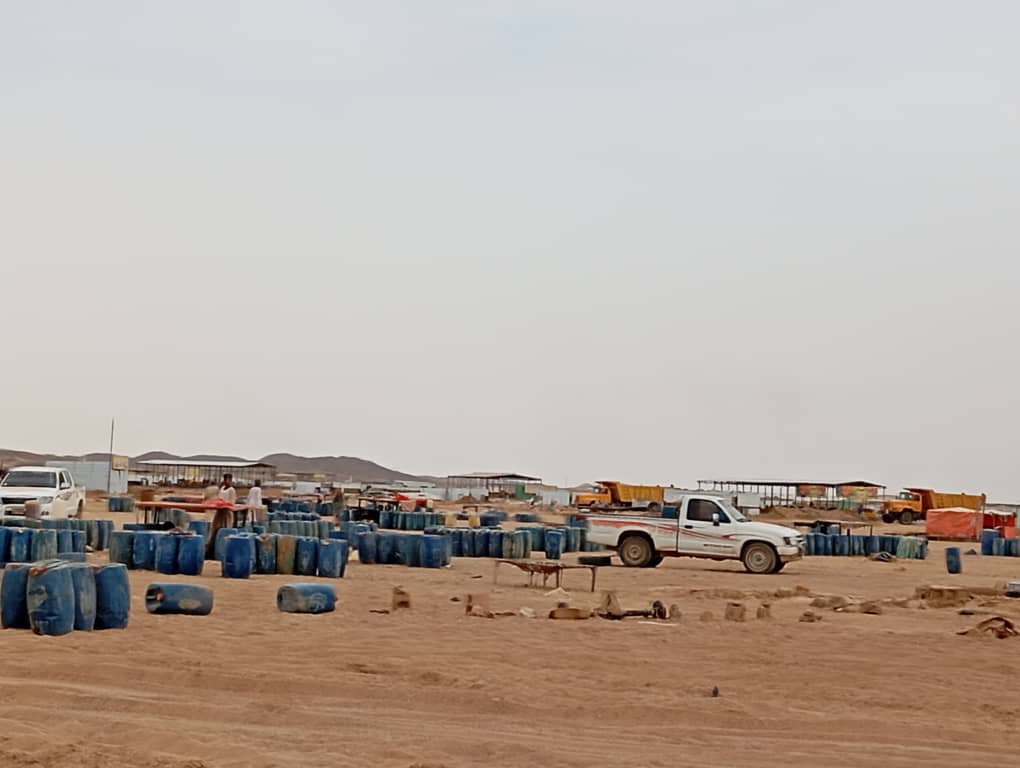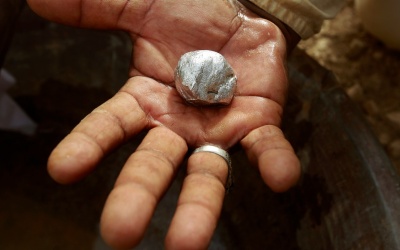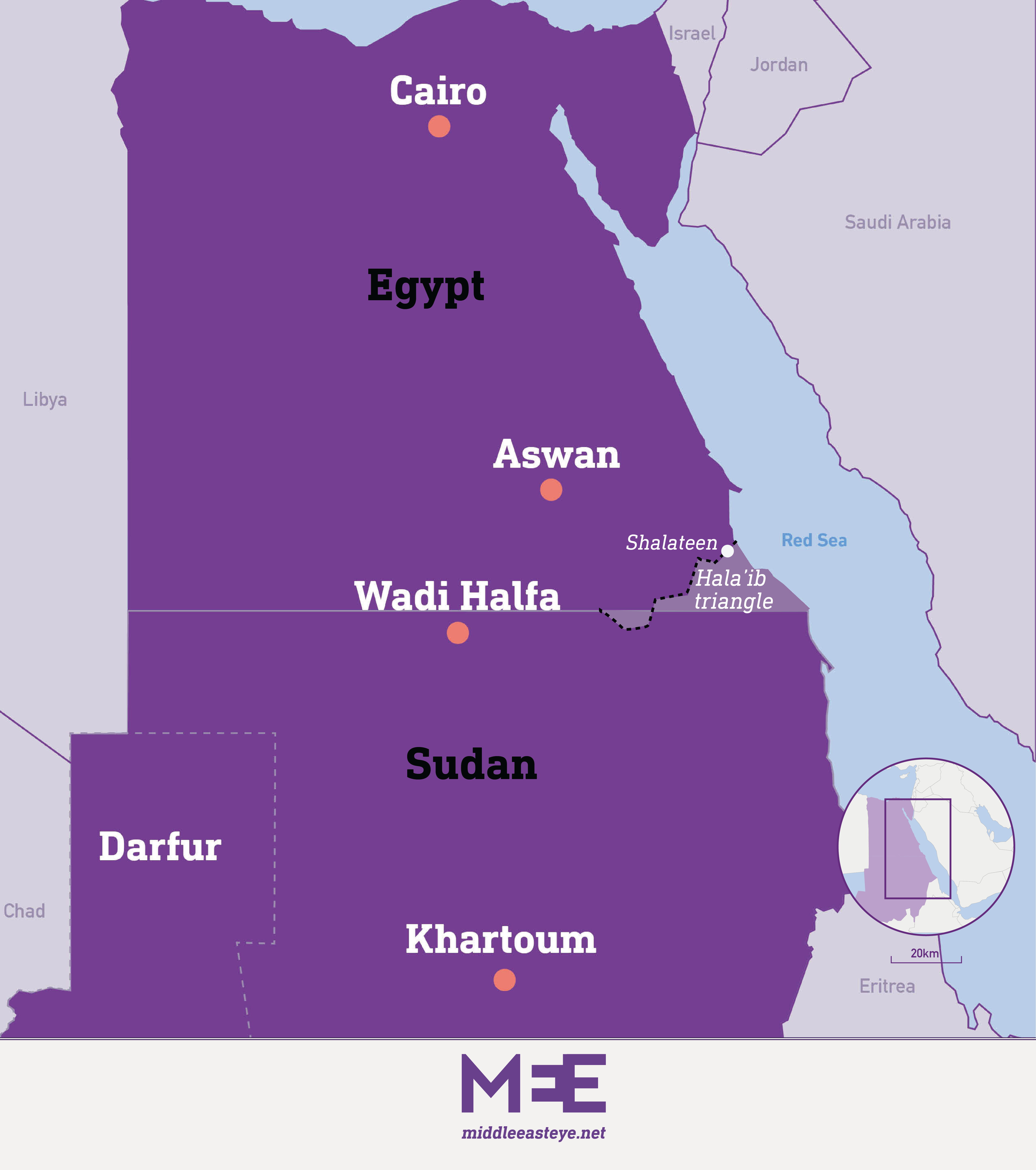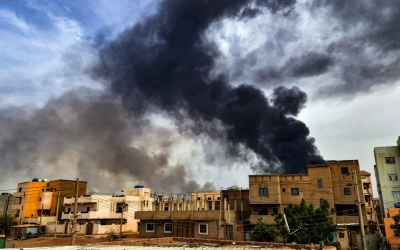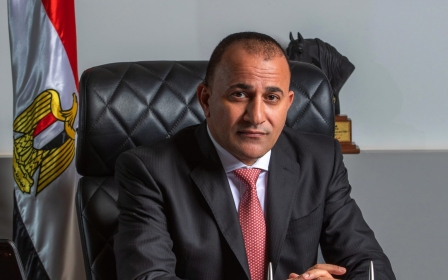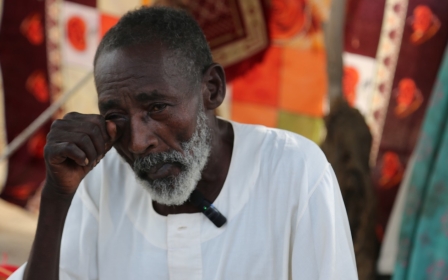The smugglers and miners running gold on the Egypt-Sudan border
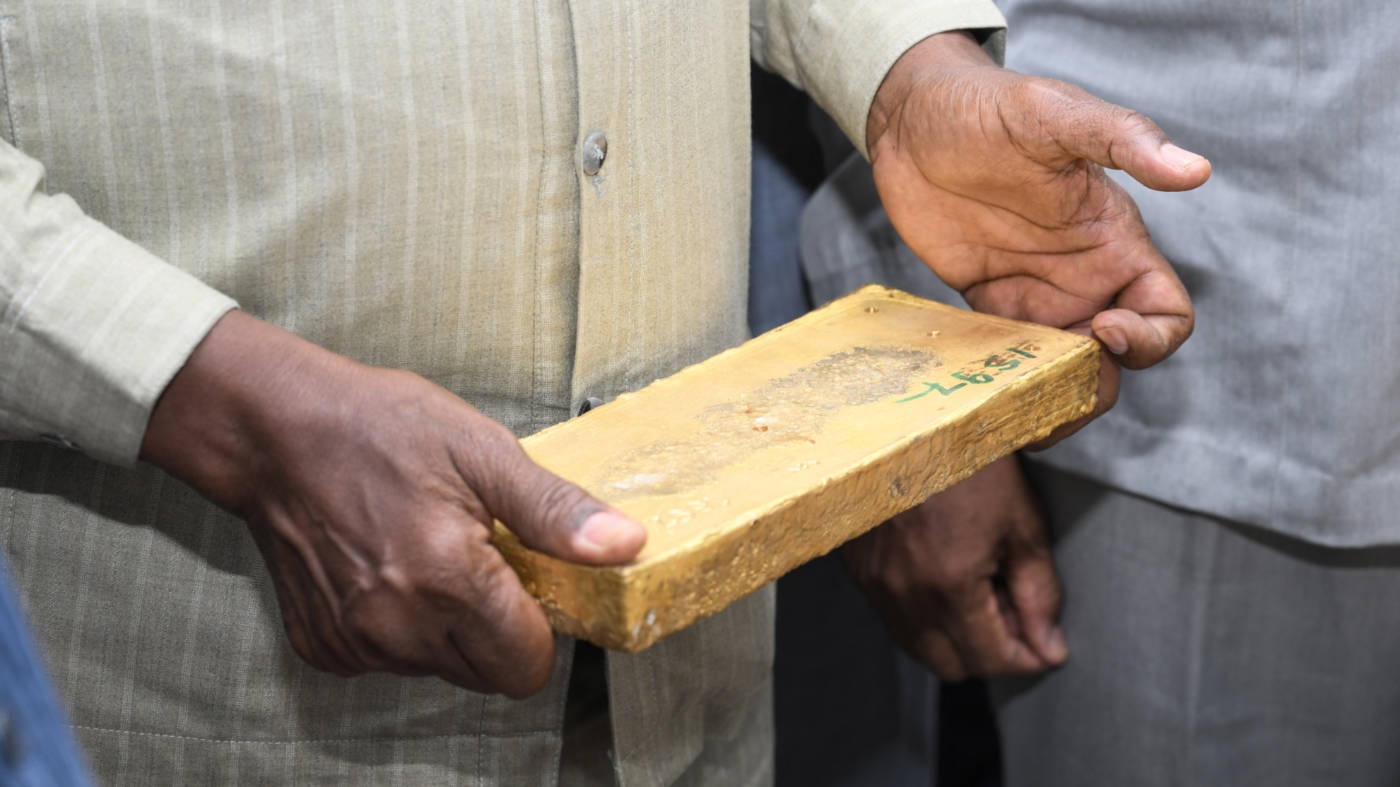
With the war between the Sudanese army and the Rapid Support Forces (RSF) paramilitaries over 18-months old, gold smuggling is flourishing on the country’s border with Egypt.
The trade, which involves tens of thousands of people and has drawn in people from countries beyond Sudan and Egypt, is part of a web of organised crime that runs along the border.
Egypt has around 125 traditional mining areas in the Nubian region of southern Egypt. Gold can be found in the Eastern Desert, a 223,000-square kilometre stretch of the Sahara located east of the Nile river, along the Red Sea coastline and in the triangle border region between Egypt, Sudan and Libya.
According to the Egyptian Mineral Resources Authority, the main mining companies are state-owned Shalateen, Hammash Misr and Sukari, which is owned by multinational gold mining company Centamin and headquartered on the island of Jersey, a tax haven.
British, Russian, Australian and other international players are all involved in the rush for gold in the region, with Egypt recently opening other new gold mining zones in the Eastern Desert in the “golden triangle” area.
New MEE newsletter: Jerusalem Dispatch
Sign up to get the latest insights and analysis on Israel-Palestine, alongside Turkey Unpacked and other MEE newsletters
Ahmed Hussein, a Sudanese miner who arrived recently in Aswan, said that more than 10 new gold mining areas have been opened in Aswan province recently by local miners acting on their own initiative and without government monitoring.
On the other side of the border, Sudanese mining patches have been opened or expanded in Red Sea, Northern and River Nile states since the war broke out in April 2023. Sites close to the Egyptian border are noticeably successful for logistical reasons, particularly the easy transportation of supplies from Egypt.
'I send my gold through those strong tribal men, who know the secret routes through the mountains and deserts'
- Sudanese gold miner
“There are new mining areas opened or old areas expanded in the Red Sea state near the desert that runs between Egypt and Sudan," the miner, Ibrahim, said. "This area has flourished, with mining taking place in the areas of Almatar, Almirg, Gabal Nimir, Nouraya, Alansari, Altbreeda and Alabar, amongst others.”
Ibrahim pointed to the “Salah” mining area in southern Egypt, which has expanded close to Shalateen, the biggest town in the Halaib Triangle, a disputed territory claimed by both Egypt and Sudan.
Established in 2017, Ibrahim worked in the Salah area until 2023. He said there were around 20,000 other Sudanese working alongside him, and thousands of Egyptians.
“I was working in that place for around three years. We would go with the gold to the country where the prices are higher. In the past we went to Sudan but recently Egypt is much more feasible to us as the prices are higher recently,” he told Middle East Eye.
Organised tactics
Dozens of Sudanese gold miners come to Aswan’s gold markets to sell the gold they have to buyers, but because the activity is illegal the gold has usually been smuggled into Egypt by organised gangs and smugglers.
According to multiple sources, huge amounts of gold have been smuggled from Sudan to Egypt, while cheap fuel, arms and other goods go back the other way.
A Sudanese smuggler told MEE they bought the gold either directly from small miners or sometimes from markets in Sudan’s River Nile and Red Sea states.
He explained the tactics used by smugglers to bring across the border from Sudan to Egypt, with different methods used depending on the amount of gold being transported.
“The individuals who are coming legally through the borders are always trying to hide the gold in their clothes or women are hiding it on their person,” the smuggler told MEE.
He said that when people were being smuggled themselves – if they were crossing the border illegally – they might be asked by the smuggler driving the car they were in to hide the gold, sometimes in exchange for getting a free ride.
Another gold miner noted that the mountains and deserts of northern Sudan and southern Egypt provided the perfect environment for a network smuggling people - not just from Sudan but also from Ethiopia, Eritrea and elsewhere in Africa.
The miner added that strong, armed men from the Ababda, Rashaida and Bishari tribes, now living on both sides of the border, are the main dealers bringing gold from Sudan to Egypt.
“I send my gold through those strong tribal men, who know the secret routes through the mountains and deserts. They take a commission from the gold that is coming from Sudan,” the miner said.
In the mountains around Aswan and other areas of southern Egypt, including Luxor, Kom Ombo and Edfu, gold is handed over at specific meeting points agreed in advance between the smuggler and the group taking it.
Sometimes, the miner told MEE, the payment, which is in dollars, happens ahead of time. “In other cases, the payment happens at the same time as the gold is handed over. And in other cases, the gold is exchanged for other illegal goods, including fuel, mercury, cyanide, and other things.”
A driver involved in smuggling operations told MEE: “One of the main tactics to cover the operations is to change the car you use to bring the gold across the border. Sometimes I sell the car immediately when I enter Egypt. Sometimes, I sell it as spare parts after dismantling it.”
Egyptian authorities look away
As smuggling becomes bigger and bigger business, Egyptian authorities are accused of turning a blind eye to the illegal trade, with the country needing to increase its gold reserves to support the Egyptian pound, which has been deteriorating sharply against the dollar.
Egypt devalued its currency in January 2023 by 40 percent to $0.03 and floated it in March 2024, dropping the value to $0.02. At the same time, Egyptian gold reserves increased in 2023 to 126 tonnes, an all time high.
According to the Egyptian Ministry of Oil and Mining, Egypt has focused on the expansion of the gold production since 2019, when it passed new legislation aimed at attracting local and international tenders for companies to enter the sector.
Up until 2023, just 11 international and local companies responded to this, looking to the Eastern Desert and the Red Sea coastline but with only $65m made in about three years.
This has, according to various statistics, since skyrocketed. Egypt has rapidly increased its revenues from gold production from $6bn in 2022 to $8.4bn in December 2023, reaching $9.5bn in the first half of 2024.
Egypt produces about 15.8 tonnes of gold per year, most of which comes from Sukari in the Eastern Desert, according to a January 2024 report by the World Gold Council.
A Sudanese researcher said that the Egypt’s policy of increasing its gold reserves has led to an increase in demand and to the hiking of gold prices in Egypt over the last two years.
The researcher, who asked not to be named for security reasons, said that the policy has raised gold prices in Egypt above international ones, adding that “since 2022, international gold prices increased by around two percent while in Egypt they have gone up 16 percent”.
A Sudanese gold trader who was working in a Khartoum gold market before the war said the price of gold in Egypt is higher than in Sudan. This is particularly true of 21-karat gold, which is very rare in Egypt. In Sudan, the price for a gram of 21-karat gold is $60, while in Egypt it is more than $80.
The gold trader explained that 21-karat gold is more marketable in Egypt than other forms of gold produced locally, such as 24-karat.
“Because of this, Sudanese gold is very desirable in the Egyptian market, and this has fuelled the ambitions of gold traders and smugglers looking to profit,” the trader, who asked to remain anonymous for security reasons, told MEE.
“Moreover, we are not just talking about individual traders. The Egyptian authorities have ambitions to create wide gold reserves in the Egyptian Central Bank in order to help stabilise the currency and economy,” he said.
Middle East Eye delivers independent and unrivalled coverage and analysis of the Middle East, North Africa and beyond. To learn more about republishing this content and the associated fees, please fill out this form. More about MEE can be found here.


